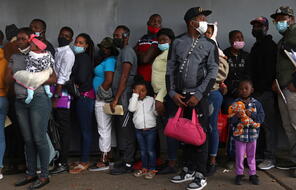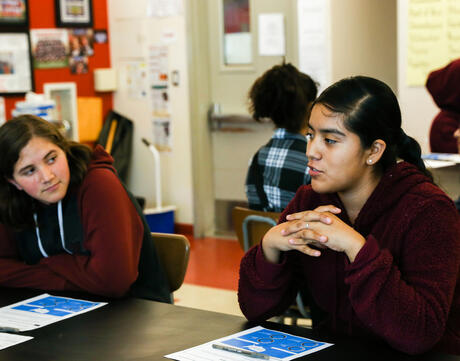
Collection
Current Event
Teaching Current Events
Explore lesson plans to help connect current events to your curriculum, including activities and discussion techniques.
Subject
- Advisory
- Civics & Citizenship
- English & Language Arts
- History
- Social Studies
Grade
6–12Language
English — USPublished
Updated
Why Teach Current Events?
Schools are microcosms of democracy, and classrooms are an ideal place for students to develop and practice the media literacy and discussion skills that are needed for civic participation and are foundational to our current events resources. High quality learning experiences about current events are proven to increase students’ interest and engagement in school as well as their sense of civic agency. 1
We create resources on persistent issues and themes in the news in order to help students:
- Become more informed and humane participants in society through discussion of current events, past and present dilemmas, and connections between literature and our contemporary world
- Deliberate and build understanding across difference by considering diverse perspectives, communicating opinions and arguments, and weighing facts and evidence
- Learn about contemporary instances of bigotry and hate and explore models for upstanding
- Develop media literacy strategies needed to navigate the information they encounter in daily life and when consuming news
- 1Siegel-Stechler, Kelly; “Inquiry, Viewpoint Pluralism, and Student Engagement Research Brief,” Educating for American Democracy
How to Teach with Current Events: Getting Started
If you’re new to teaching with current events, these materials can provide you with helpful guidance for getting started.
Toolkit
Save
Current Events Toolkit
This toolkit provides flexible and adaptable tools and strategies for integrating current events into your teaching.
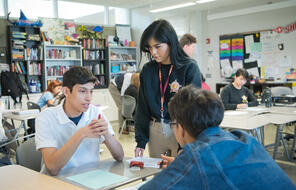
Professional Learning
Teaching with Current Events Self-Paced Workshop
Self-Paced Course
Virtual
This workshop introduces Facing History’s approach to teaching with current events, which includes reflection, pedagogy, and teaching strategies.
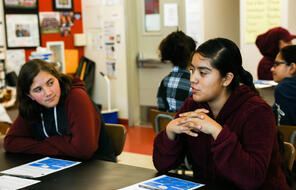
Guide
Save
Teaching Current Events: Educator Guide
This guide includes tools and strategies for organizing discussions about current events in your classroom.
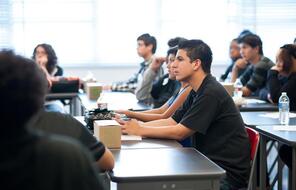
Guide
Save
Fostering Civil Discourse: Difficult Classroom Conversations in a Diverse Democracy
The tools and strategies in this guide will help you prepare students to engage in difficult conversations on topics that matter to them, to their communities, and to our world.

Mini-Lesson
Save
Teaching in the Wake of Violence
This mini-lesson contains strategies and activities for supporting your students in the aftermath of violent events targeted at people because of their identities.

Mini-Lesson
Save
Creating Healthy News Habits
Help students develop healthy habits for protecting their mental health while staying informed and taking action.

Teaching Strategy
Save
Head, Heart, Conscience
This strategy uses reflection prompts to help students consider a complex or emotional topic through the lenses of head, heart, and ethics.
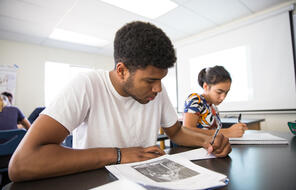
Mini-Lesson
Save
Protecting Teen Mental Health
Learn about some of the factors impacting teen mental health and actions we can take to promote wellbeing.

Democracy & Elections
Invite students to explore the meaning of democracy and the important role elections play in a healthy democracy. Examine the health of democracy, voting and elections, and the pivotal role civic participation of young people plays.
Explainer
Save
Free and Fair Elections
This Explainer describes the standards that governments need to meet before, during, and after an election to ensure that the election is "free and fair."
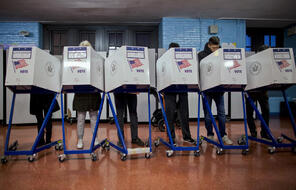
Mini-Lesson
Save
The Hope and Fragility of Democracy in the United States
In this mini-lesson, students learn about the history of democratic and anti-democratic efforts in the United States and examine sources that illuminate this tension from Reconstruction through today.
Mini-Lesson
Save
A New Generation of Young Voters Emerges
Explore why young people tend to vote at lower rates and how they can get more involved in elections.
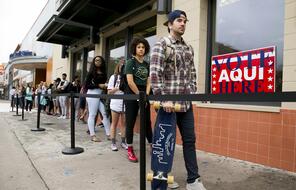
Mini-Lesson
Save
Voting Rights in the United States
In this mini-lesson, students learn about the history of voting rights in the United States and consider how current voting laws in different states impact voters today.
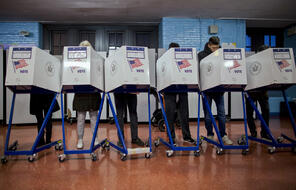
Explainer
Save
Political Polarization in the United States
This Explainer defines the term political polarization and provides information on how it impacts US politics and society.

Mini-Lesson
Save
The Supreme Court, Trust, and Political Partisanship
Learn about the widening gap in partisan perceptions of the Supreme Court and the history of partisan politics in the Court.

Media Literacy & Digital Citizenship
Prepare students to responsibly and ethically utilize technology and to navigate various types of media with discernment. These media literacy and digital citizenship teaching resources foster students’ digital literacy and spur healthy habits around media and technology use.
Unit
Save
Media Literacy for Critical Thinking and Democracy
This unit introduces students to fundamental concepts and skills related to media literacy.

Mini-Lesson
Save
The Ethics of Generative AI in the Classroom
This is the first mini-lesson in a two-part series on the impact generative AI tools such as ChatGPT and DALL-E have on education.
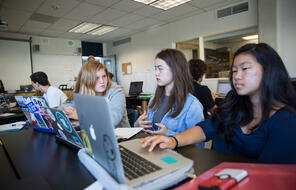
Mini-Lesson
Save
Learning to Navigate Generative AI Content: Media Literacy Strategies
This is the second mini-lesson in a two-part series on the impact of generative AI tools such as ChatGPT and DALL-E on education.

Mini-Lesson
Save
When Online Hate Speech Has Real World Consequences
This mini-lesson explores celebrity influence and online hate, specifically antisemitism.

Mini-Lesson
Save
Influence, Celebrity, and the Dangers of Online Hate
Explore questions around the power of social media influencers and consider who has the ability to counter online hate.

Mini-Lesson
Save
What Does It Mean to Live with Social Media?
In this mini-lesson, students sharpen their media literacy skills as they evaluate the impact of social media on their lives and question how we can manage social media’s harmful effects.

Mini-Lesson
Save
How to Read the News Like a Fact Checker
Reading “laterally” is a key media literacy strategy that helps students determine the quality of online sources. This mini-lesson trains students to use this technique to evaluate the credibility of the news they encounter on social media feeds or elsewhere online.
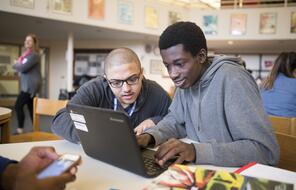
Civil Rights & Human Rights
Help students understand human rights and process events around the world that violate or threaten these fundamental rights. These lesson plans and activities are designed to help you center humanity and foster empathy as you discuss sensitive topics with students.
Mini-Lesson
Save
Human Rights in the News
Help students understand what human rights are and how people are working to promote them.
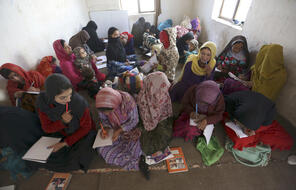
Explainer
Save
What Is Genocide?
This explainer helps students understand the meaning, gravity, and history of the concept and crime of genocide.
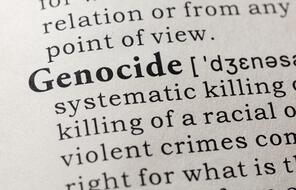
Explainer
Save
Antisemitism and Its Impacts
Use this Explainer and Tropes Chart to help students understand what antisemitism is, how it shows up in contemporary settings, why it persists, and how it impacts individuals and communities.

Explainer
Save
What Is Islamophobia?
Use this explainer to help students understand Islamophobia and how it manifests in contemporary society through various tropes.

Mini-Lesson
Save
The Targeting of Uighur Muslims in China
Help students understand the Chinese government’s violations of Uighur people’s human rights, hear the voice of a young Uighur woman, and consider the international community's response.
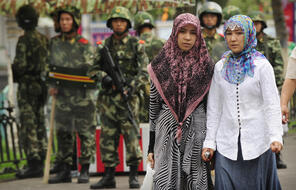
Mini-Unit
Save
Policing and the Legacy of Racial Injustice
This series of mini-lessons is designed to help students think critically about the long and troubling history between law enforcement and Black Americans.
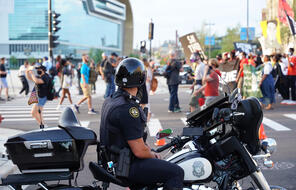
Unit
Save
Teaching about Hate Crimes and Their Impacts
This unit helps students understand what hate crimes are, the ways they impact individuals and communities, and what people can do to foster belonging and counteract hate.

Explainer
Save
What Is a Hate Crime and How Do Hate Crimes Impact People?
This explainer helps students understand what hate crimes are and the impact they can have on individuals and communities.

Civic Engagement & Making a Difference
Help students understand how young people can act as upstanders who stand up for what they believe in, challenge bigotry and hate, and build a better world.
Mini-Lesson
Save
Art, Imagination, and the Quest for Racial Justice
In this mini-lesson, students learn about the power of art as a tool for social change and explore how Black Lives Matter activists are using art in the fight for racial justice.
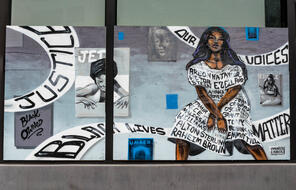
Mini-Lesson
Save
Hardship and Hope: Teaching Amanda Gorman’s “New Day’s Lyric”
This mini-lesson invites students to analyze Amanda Gorman’s poem “New Day’s Lyric” and create a class poem about hope and collective action during challenging times.

Mini-Lesson
Save
Young People Respond to Climate Change
Explore with your students why young people are calling for action against climate change and some of the strategies they can use to make a difference on this issue.
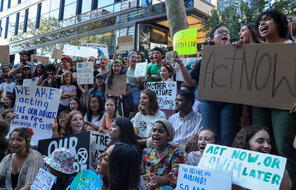
Mini-Lesson
Save
The Common Good in Times of Crisis
This mini-lesson invites students to explore how their actions and the actions of their leaders can help promote the common good in a time of crisis.

Migration & Immigration
Equip students to understand the policies, debates, and human stories of immigration around the world. With more than 250 million migrants around the world, including more than 65 million refugees, it is important to understand the causes of migration and its impact on communities.
Mini-Lesson
Save
Why Do People Migrate?
In this mini-lesson, students reflect on stories of migration and learn about migration from El Salvador to the United States as a means of exploring the underlying factors that drive migration.
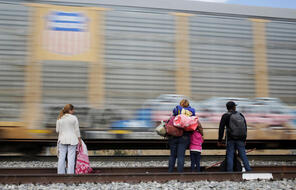
Mini-Lesson
Save
What Is Our Obligation To Asylum Seekers?
This lesson helps students understand how the United States’ complex asylum process works. Invite them to consider the question, who has an obligation to asylum seekers?
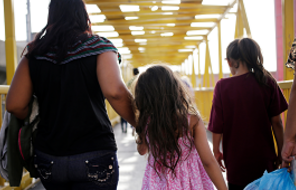
Mini-Lesson
Save
Teaching about the Ukrainian Refugee Crisis
Use this mini-lesson to introduce students to the experiences of Ukrainian refugees fleeing war, highlight inspiring ways people have stepped up to help, and raise ethical questions about the treatment of refugees from non-European countries.
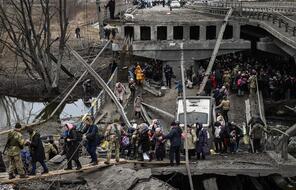
Mini-Lesson
Save
Different Perspectives on Migrant Detention
In this mini-lesson, students gain insight into migration and the systems surrounding migrant detention by considering the perspectives of migrants, an immigration lawyer and advocate, a border guard, and an immigration judge.
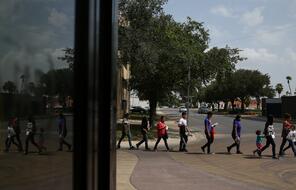
Mini-Lesson
Save
Haitian Migrants at the US–Mexico Border
This mini-lesson uses images and firsthand accounts of Haitian migrants to humanize the events happening at the US–Mexico border and give shape and nuance to the news.
